Peter Moores a good man treated badly - Jonathan Agnew
- Published
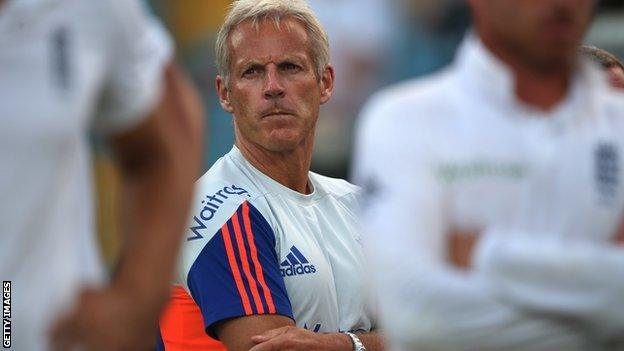
Peter Moores' second spell as England coach lasted little more than a year
By BBC cricket correspondent Jonathan Agnew |
Before one even begins to evaluate the decision to sack Peter Moores, it's right to highlight the circumstances in which it came about.
Rumours and reports appeared during the one-day international against Ireland, with people writing and talking about him in the past tense while he was on public display. It was humiliating for someone who, regardless of what you think of him as a coach, is a thoroughly good man.
There is supposed to be a new regime in place at the England and Wales Cricket Board, a new start after a year that has seen the public become increasingly disillusioned with the game and the manner in which it is run.
Instead, in the past few weeks, we have had confusion about a possible recall for batsman Kevin Pietersen,West Indies being called mediocre with no apology and potentially a very serious rift developing between Yorkshire and England. Now the coach has been sacked, with the news appearing widely in the media before he was told.
The administration really needs to take a long, hard look at itself and make a determined effort to improve its public relations. A few years ago, the ECB was being held up as the sporting organisation for others to look at and learn from.
At the moment, what is going on, including the various comments from the incoming chairman Colin Graves, is embarrassing. England and the game in this country appear to be no further on from the post-Ashes mess in which Moores arrived a year ago. We are back to where we started, with ill-feeling, rancour and misjudged comments. This was supposed to be a fresh start.
I feel sorry for Moores because he has worked tirelessly to make his second attempt at the job a success. Ultimately the results have not been good enough, with the defeat in the third Test in the Caribbean one too many.
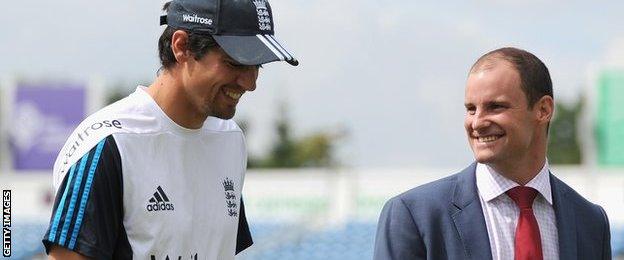
Removing Moores seems to have been a move by new ECB director of cricket Andrew Strauss (right)
Moores is a good coach - the fact he has won the County Championship with both Sussex and Lancashire tells us that - but there is a general feeling around the game that he has not cut it at this level. He has never played international cricket; that is not a pre-requisite for the coach of a national team, but in his case it has, perhaps, proved to be a disadvantage.
His final mistake came on that tour of the Caribbean. With a little more adventure, England could have won the series.
A different attack, including either the spin of Adil Rashid or pace of Liam Plunkett, might have won the first Test in Antigua, meaning England would have had a 2-0 lead before their final slide in Barbados. Moores must take his share of the blame for the conservative selection policy.
Captain Alastair Cook would have also been involved in that, but he had a relatively good tour and his position looks safe until the Ashes, when he will need to have a good series.
The decision to remove Moores seems to have been taken by the new director of cricket Andrew Strauss. How that appeared in the public domain before Strauss had even started his job is more than just careless. And it is no way to treat an employee and a decent man.
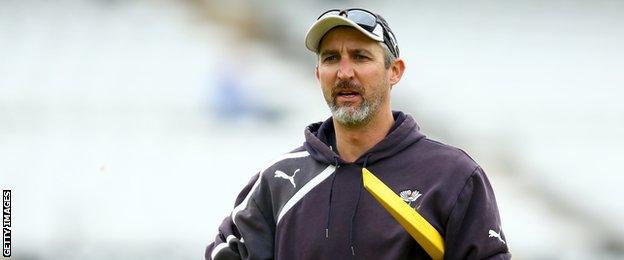
Yorkshire coach Jason Gillespie appears to be the favourite to replace Moores
Still, it goes some way to disproving those who think Strauss is too cautious to take the job. Removing the coach before you've got your feet under the table is certainly not an act of caution.
Strauss is instinctively measured and careful. We still know little about the responsibilities of his role, so it is hard to judge how successful he will be - is he to become a selector, for example?
However, what we do know now is that one of his first duties will be to appoint a new coach.
Jason Gillespie appears to be the favourite: a man who has done an excellent job at Yorkshire with some very good players. However taking over a struggling international team very low on confidence would be a different proposition and a huge challenge.
The options of where to look for the new coach are limited because the most talented leaders in the game - the likes of former New Zealand captain Stephen Fleming and ex-India and South Africa coach Gary Kirsten - are happy working in the various Twenty20 leagues and are not willing to exchange a massive pay cut for a constant slog around the world. People forget that this was a major issue when Moores was appointed for the second time - there was a dearth of high-quality candidates.
A year on, England find themselves in the same position. If they really believe Moores is not the man, it is not too late to remove him before the huge summer ahead. Better now than with an Ashes crisis looming.
But, once again, there is nothing to admire about the handling of the situation.
- Published9 May 2015
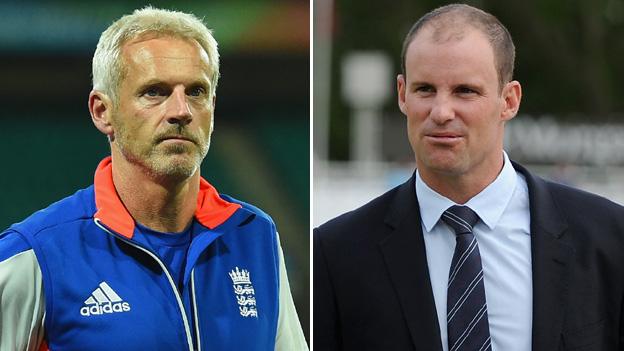
- Published9 May 2015

- Published5 May 2015
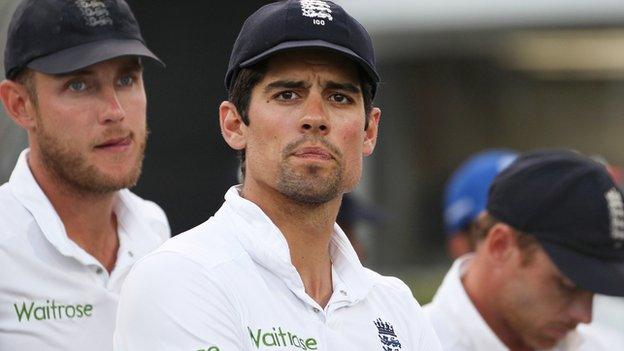
- Published10 March 2019

- Published18 October 2019

- Published8 July 2019

